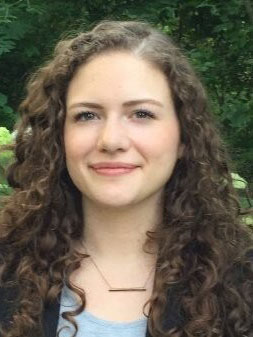
Eva Borquez, MPP’24, first became interested in public policy after working at several different nonprofits in both direct service and fundraising. She noticed how larger systemic issues at play often weren’t addressed. “They frequently focused on treating the symptom rather than the cause. This brought me to public policy. I wanted to figure out how we could shift that and identify what the causes were.”
Heller offered the opportunity to focus on her primary area of interest: addressing economic mobility and racial wealth gaps, within the MPP program’s concentration in economic and racial equity. “I was drawn to Heller because of the intentional framing of how policy can impact people that I didn’t see in any of the other programs that I was considering.”
Joining the Heller Community
Like many members of her cohort, Eva moved to the Waltham area from out of state, but she quickly immersed herself in the Heller community. “Coming from Detroit, I knew it would take me some time to acclimate, but luckily I was in great company among a supportive group of peers. Everyone came in with a unique background and a wealth of knowledge that they then shared with the community.”
Eva found that the Heller community—the Heller faculty and staff in particular—made a significant impact on her experience and career trajectory. “The faculty are genuinely invested in who we are as people as well as our studies and growth during the program, and you can tell that this is going to continue after graduation. They’re very invested in who we are, what we’re doing, and how we are using our Heller education to make a positive impact.”
Putting MPP Lessons Into Practice
In 2023, Eva served as a policy intern at the Massachusetts Budget and Policy Center, where she focused on work related to MassBudget’s mission of creating a more equitable Commonwealth. Eva conducted research on racial wealth gaps and various asset-building policies that can help to minimize these gaps. Using this data, she compiled and led the design of a report advocating for an economic policy called Baby Bonds, in which the state would invest a seed donation for every baby in Massachusetts eligible for Transitional Aid to Families with Dependent Children (TAFDC). When the child turns 18, the money could be used for an asset-building activity like a down payment on a home, buying into a small business, or helping to pay for higher education. The impactful work she did during her internship inspired her to continue focusing on research that can put results into action.
From Grad Student to Research Fellow
After graduating, Eva connected with the founder of the Michigan Hispanic Collaborative, a nonprofit organization that provides academic and career support programs and services to help Latinx/e students graduate from college and achieve career success. Eva’s internship the previous summer with MassBudget had prepared her with insights into how a think tank advocates for policies and can advance equity—experience that proved to be an excellent fit for a research fellowship with the Collaborative. “The organization is now positioned to take a more holistic view at what enables students to succeed, including housing access, income, and wealth. The skills I gained resonated with them and their goals for future work.”
Advice for Current MPP Students
Be curious. “Take a wide array of classes. When you’re in the program, you don’t necessarily know the exact skills that you may need in your professional career. The policy area you’re interested in could change too, so it’s important to diversify your knowledge base and learnings. Take courses with different professors, different policy focuses, and even those that may be outside of the MPP program. All of this exposure to new ideas and lenses helps to round out who we are as professionals and the skills that we can take into the workforce.”
Advice for Prospective Students
Enjoy the process. “As students, there’s always a tendency for us to move forward with our eyes trained on deadlines—the final draft of a paper, the assignment due date, the next exam. Try to be present in the program and make the most of every minute. It’s a wonderful opportunity to grow, learn, and make a difference.”
